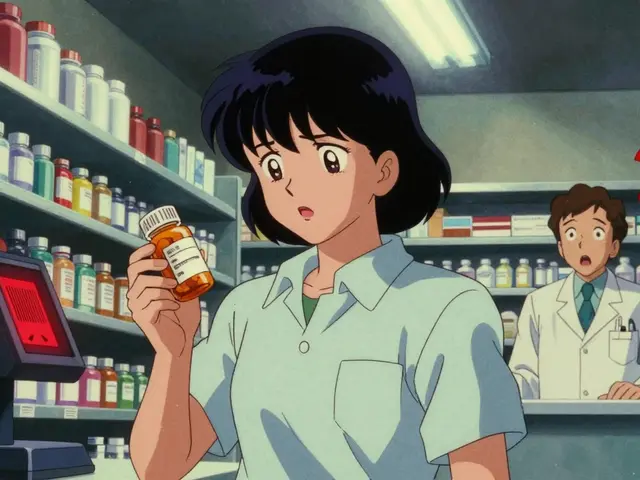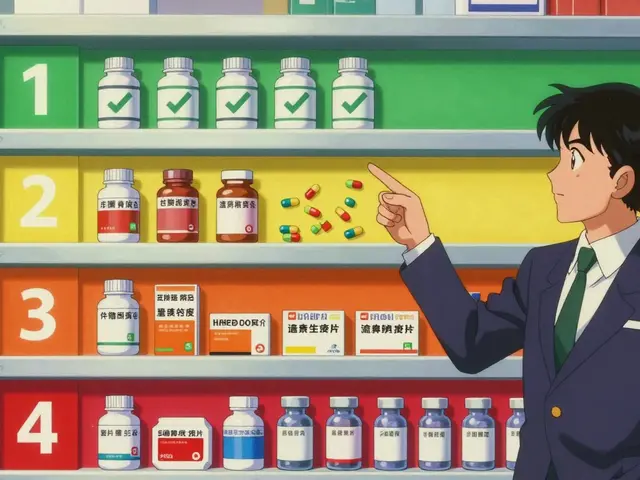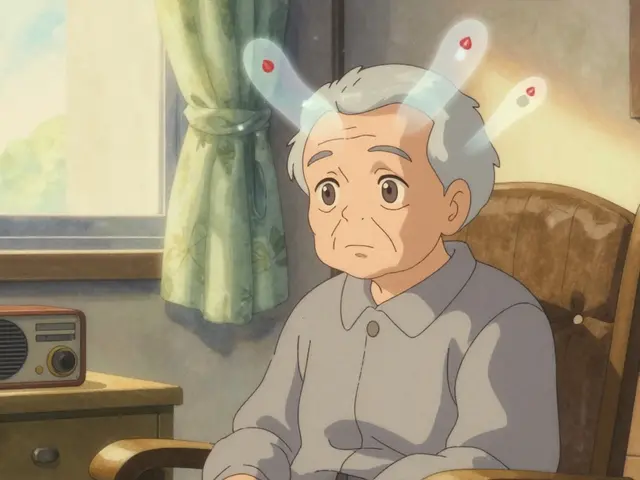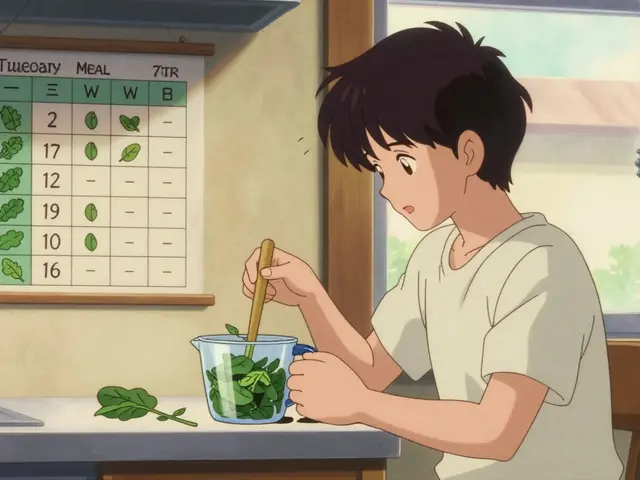Understanding the Connection Between Vitamin C and Iron
When we think about the role of vitamins and minerals in our bodies, it's easy to overlook just how interconnected they can be. One such connection exists between vitamin C and iron, two essential nutrients that play a vital role in our overall health. In this section, we'll explore the relationship between these two nutrients and how they work together to support proper bodily functions.
Vitamin C, also known as ascorbic acid, is a water-soluble vitamin that is necessary for the growth, development, and repair of all body tissues. It's involved in many vital functions, including the formation of collagen, absorption of iron, and maintaining a strong immune system. Iron, on the other hand, is a mineral that is essential for the production of red blood cells and the transportation of oxygen throughout the body. Without adequate levels of both vitamin C and iron, our bodies cannot function properly, and we may become more susceptible to various health issues, including anemia.
The Role of Vitamin C in Enhancing Iron Absorption
One of the primary ways that vitamin C supports our health is by aiding in the absorption of iron from plant-based sources, also known as non-heme iron. Studies have shown that consuming vitamin C alongside iron-rich plant foods can significantly increase the amount of iron our bodies are able to absorb. This is particularly important for individuals who follow vegetarian or vegan diets, as plant-based iron sources are not as easily absorbed as iron from animal sources, known as heme iron.
So, how does vitamin C enhance iron absorption? It does so by converting iron into a more easily absorbable form. Specifically, vitamin C has the ability to reduce ferric iron (Fe3+) to ferrous iron (Fe2+), which is more readily absorbed by our bodies. This process not only increases the overall bioavailability of iron but also helps to counteract the effects of certain compounds, such as phytic acid and polyphenols, that can inhibit iron absorption.
Preventing Anemia with Vitamin C and Iron
Anemia is a common health condition characterized by a decrease in the number of red blood cells or a reduced ability of red blood cells to carry oxygen. One of the most common causes of anemia is iron deficiency, which can result from inadequate iron intake, poor iron absorption, or blood loss. By promoting iron absorption, vitamin C can play a crucial role in preventing iron-deficiency anemia.
Ensuring that you consume adequate amounts of both vitamin C and iron is essential for maintaining healthy red blood cell production and preventing anemia. Some good sources of vitamin C include citrus fruits, strawberries, bell peppers, and broccoli, while iron can be found in foods such as red meat, poultry, fish, beans, and fortified cereals. Combining vitamin C-rich foods with iron-rich foods can help to further enhance iron absorption and reduce the risk of developing anemia.
Recommended Daily Intake for Vitamin C and Iron
To ensure that you're getting enough vitamin C and iron in your diet, it's important to be aware of the recommended daily intake for these nutrients. For adult men, the recommended daily allowance (RDA) for vitamin C is 90 milligrams, while adult women need 75 milligrams. Pregnant and breastfeeding women require slightly higher amounts, with a recommended daily intake of 85 and 120 milligrams, respectively.
As for iron, the RDA varies depending on age, sex, and life stage. Adult men and postmenopausal women need 8 milligrams of iron per day, while premenopausal women require 18 milligrams. Pregnant women should aim for 27 milligrams of daily iron intake. If you're concerned about meeting these recommendations or are experiencing symptoms of anemia, it's important to speak with your healthcare provider for personalized advice and potential supplementation options.
What Happens When You Don't Get Enough Vitamin C and Iron?
Both vitamin C and iron deficiencies can have significant consequences on our health. A lack of vitamin C can lead to scurvy, a rare but serious condition characterized by fatigue, muscle weakness, joint pain, and bleeding gums. While scurvy is relatively uncommon in modern times, it can still occur in individuals with extremely poor diets or those who suffer from certain medical conditions that affect nutrient absorption.
Iron deficiency, on the other hand, is much more common, particularly among women, young children, and vegetarians. Symptoms of iron deficiency include fatigue, weakness, pale skin, and difficulty concentrating. If left untreated, iron deficiency can progress to iron-deficiency anemia, which may result in more severe symptoms, such as shortness of breath, rapid heartbeat, and even heart failure in extreme cases.
The Importance of Monitoring Your Vitamin C and Iron Levels
Given the crucial role that vitamin C and iron play in our overall health, it's important to monitor your nutrient levels regularly. This can be done through routine blood tests, which can help to identify any deficiencies or imbalances that may require intervention. If you're concerned about your vitamin C or iron levels, speak with your healthcare provider to discuss your options for testing and potential supplementation, if necessary.
In conclusion, vitamin C and iron are two essential nutrients that play a crucial role in maintaining our overall health and wellbeing. By understanding the connection between these two nutrients and taking steps to ensure that you're getting enough of both, you can help to support optimal iron absorption, prevent anemia, and promote overall good health.






Reynolds Boone
May 5, 2023 AT 02:43The way vitamin C flips iron into a more absorbable form is pure chemistry magic; it reduces ferric iron to ferrous iron, which our guts readily take up. This reaction also helps neutralize inhibitors like phytic acid, making plant‑based meals more iron‑rich. Pairing citrus with beans or spinach can boost your iron status dramatically. It’s especially crucial for vegans who rely on non‑heme iron sources. The synergy between these nutrients is one of those elegant examples of how our diet works as an interconnected system.
Angelina Wong
May 15, 2023 AT 12:43Combine a squeeze of lemon with a bowl of lentil soup and you’ll see a noticeable boost in iron absorption. A handful of strawberries with a breakfast cereal fortified with iron works just as well. Keep the vitamin C source fresh for maximum effect.
Anthony Burchell
May 25, 2023 AT 22:43Vitamin C does help a little, but you don’t need to obsess over it to stay healthy. Plenty of people get enough iron from meat and fortified foods without adding extra citrus. The body can adapt, and iron absorption isn’t entirely dependent on ascorbic acid.
Michelle Thibodeau
June 5, 2023 AT 08:43Reading about how vitamin C and iron collaborate feels like watching a sunrise over a bustling market; the colors, the smells, the promise of vitality all come together. First, the ascorbic acid acts as a diligent translator, converting stubborn ferric iron into the friendly ferrous form that our intestines eagerly welcome. This conversion not only improves bioavailability but also fights off the sneaky antagonists like phytic acid that love to hog minerals. Imagine a plate of bright red bell peppers dancing beside a spoonful of iron‑rich quinoa – they’re literally teammates in the fight against anemia. For vegetarians, this partnership is a lifeline, turning plant‑based meals into iron powerhouses. When you sip orange juice after a bean salad, you’re giving your bloodstream a friendly nudge, saying, “Hey, grab that iron!” The body, ever the clever architect, uses this cue to upregulate transport proteins, making the whole system more efficient. Moreover, the immune boost from vitamin C adds another layer of protection, ensuring you stay resilient against infections that could otherwise drain iron stores. In practical terms, a simple habit like adding strawberries to your morning oatmeal can make a measurable difference over weeks. Consistency, not just occasional bursts, builds up iron reserves and keeps red blood cells humming. The recommended daily allowances provide a roadmap, but real‑world nutrition is about blending flavors and nutrients creatively. Don’t underestimate the power of a colorful plate; it’s not just aesthetic, it’s functional. So next time you plan a meal, think of vitamin C as the enthusiastic tour guide that escorts iron through the body’s bustling streets. Your blood will thank you with brighter energy and fewer fatigue spells. Embrace the synergy, experiment with combinations, and watch your health flourish.
Patrick Fithen
June 8, 2023 AT 20:03Thinking about nutrients is like watching a river flow they mingle and change each moment it carries life through the body
Michael Leaño
June 12, 2023 AT 07:23I’ve seen friends turn their anemia around just by adding a splash of orange to their meals; the fatigue lifted, the skin brightened, and they felt more focused. It’s a small habit that yields big results, especially when combined with iron‑rich foods like lentils or lean meat. Keep it simple and stay consistent.
Anirban Banerjee
June 22, 2023 AT 17:23Dear readers, it is commendable that you seek evidence‑based guidance on the synergistic relationship between vitamin C and iron. Please consider incorporating a balanced variety of fruits, vegetables, and lean proteins to meet your daily requirements. Should you have specific concerns, consulting a qualified healthcare professional is advisable.
Mansi Mehra
June 26, 2023 AT 04:43The article is informative yet contains several typographical inconsistencies that could be rectified for clarity. A more rigorous editorial review would enhance its professional tone.
Jagdish Kumar
July 6, 2023 AT 14:43Behold the grand tapestry of redox chemistry, wherein ascorbic acid dons the mantle of a valiant reductant, graciously converting ferric iron to its more docile ferrous counterpart. This noble act not only amplifies bioavailability but also vanquishes the pernicious phytic antagonists that seek to impede absorption. Such a dramatic interplay dazzles the palate and the bloodstream alike.
Aminat OT
July 10, 2023 AT 02:03i cant even deal how tired i feel when my iron is low its like my body just says no
Amanda Turnbo
July 20, 2023 AT 12:03Honestly, if you’re not tracking these nutrients you’re missing the basics of health, step up.
Jenn Zuccolo
July 23, 2023 AT 23:23In the alchemy of the body, vitamin C and iron perform a dance that mirrors the eternal balance of opposites, each enhancing the other's purpose in a harmonious cycle.
Courtney The Explorer
August 3, 2023 AT 09:23Iron‑C synergy is a bioavailability paradigm shift!
Ashleigh Connell
August 6, 2023 AT 20:43It's wonderful to see such diverse perspectives; together we can craft balanced diets that honor all cultures.